Due to shifts in global recycling systems and high contamination levels of U.S. recyclable materials, the Massachusetts DEP has recently announced new recycling rules. One major change is that colored plastic cups will no longer be accepted in our recycling stream. However, clear plastic cups will still be taken. To avoid accidentally ending up with a colored cup, be sure to bring your own reusable cup the next time you buy a beverage on the go!
For details on the rules, view the visual guide below and check out the DEP’s website on their new guidelines.
Empty, Clean, and Dry
Items that can be recycled such as hard plastic containers, yogurt cups and plastic bottles and jugs (with the caps on) as well as glass bottles MUST be emptied, cleaned, and dried before being placed in a recycling bin. Please do not put any items with food, food residue, or liquid still in them in the recycling bins.
Plastic Bags are NOT recyclable
Any kind of plastic film or plastic bags can not be placed in the recycling bins. This includes grocery bags, bubble wrap, flexible plastic packaging, saran wrap, zip lock bags, and styrofoam. These items get caught in the machinery used in sorting facilities and can cause breakdowns and even worker injuries.
Other items that are NOT accepted as recycling
These items go to the landfill. Do NOT place these items in the recycling bins.
Paper items
- paper towels
- paper plates
- tissues
- cups (with lids)
Cardboard
- greasy pizza box bottoms
- juice and milk cartons
Plastic (even with recycling symbol)
- colored plastic cups
- plastic bags and plastic wrap
- chip bags
- styrofoam
- plastic utensils
- foil-lined energy bars – brings these to a terracycle bin (locations on our Eco-Map) instead!
Glass
- lightbulbs – bring incandescent and CFL light bulbs to 550 Boston Ave. to have them replaced for LED light bulbs!
- broken glass
When in doubt, throw it out
It may seem counterintuitive to throw something out in order to support sustainability. However, it is much better to throw something out if you are unsure it can be recycled rather than contaminate the recycling with materials that can not be recycled. Please refer to the infographic below, but when in doubt, throw it out.
In addition, do not rely on the triangular recycling symbol found on many products. This symbol signifies that the material used in the product are physically able be recycled, but that does not meant that the waste infrastructure in your specific community has the capacity to recycle them.
For example, the sorting facility where recyclables from Tufts end up can not accept plastic bags, as they can damage the sorting equipment. However, companies like Trex take plastic bags and have a separate, special sorting facility where they can turn those bags into recycled outdoor decking materials and products.

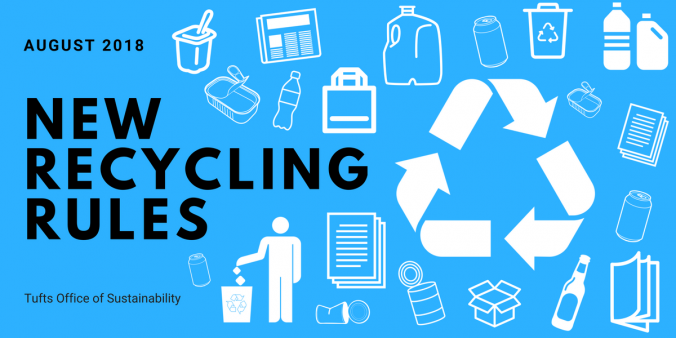

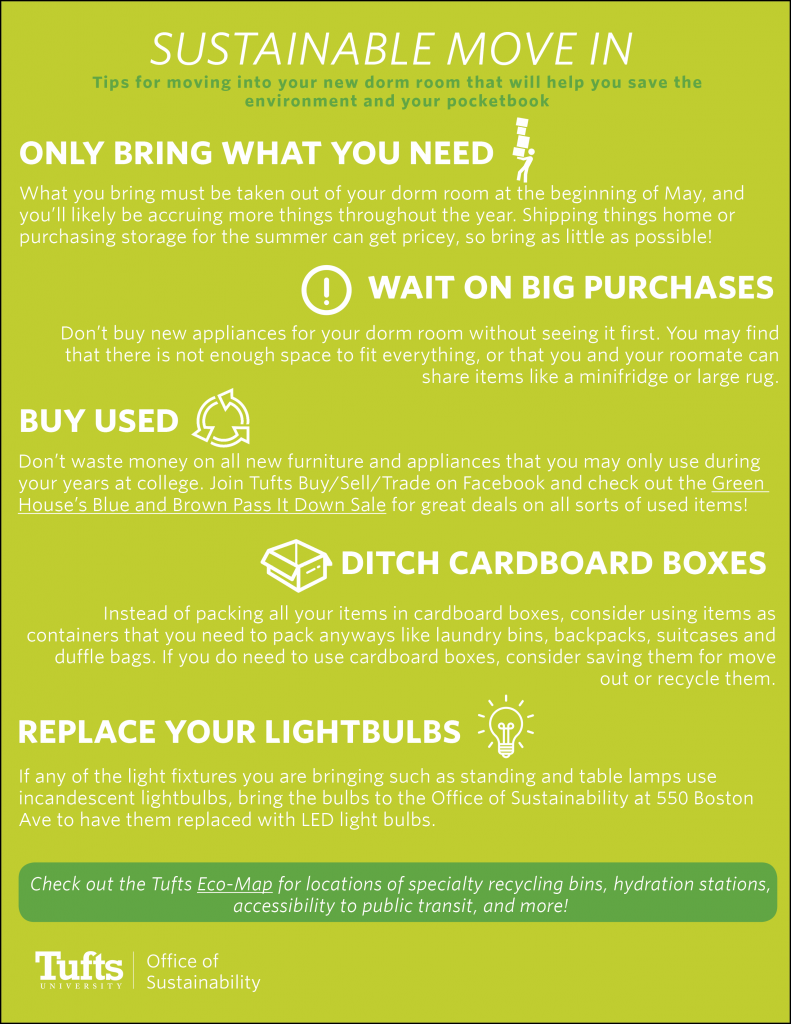
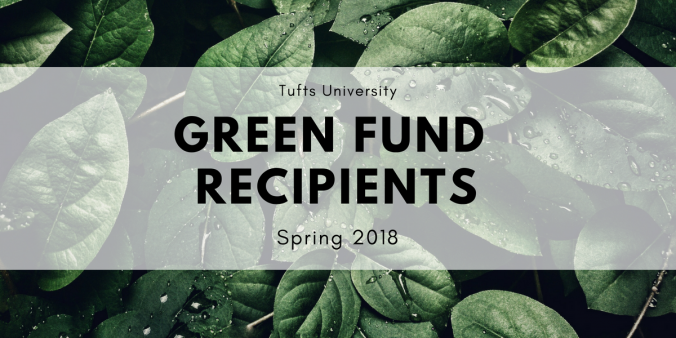

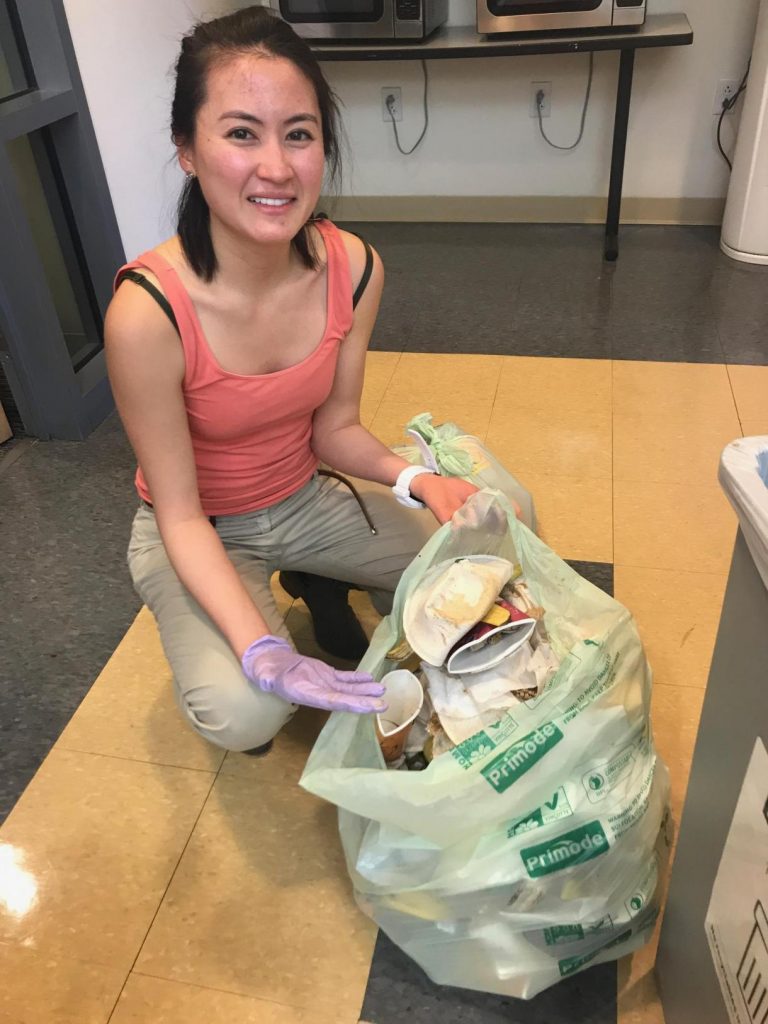
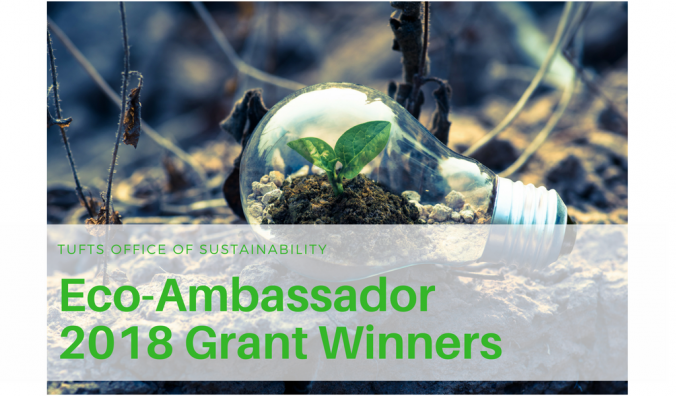
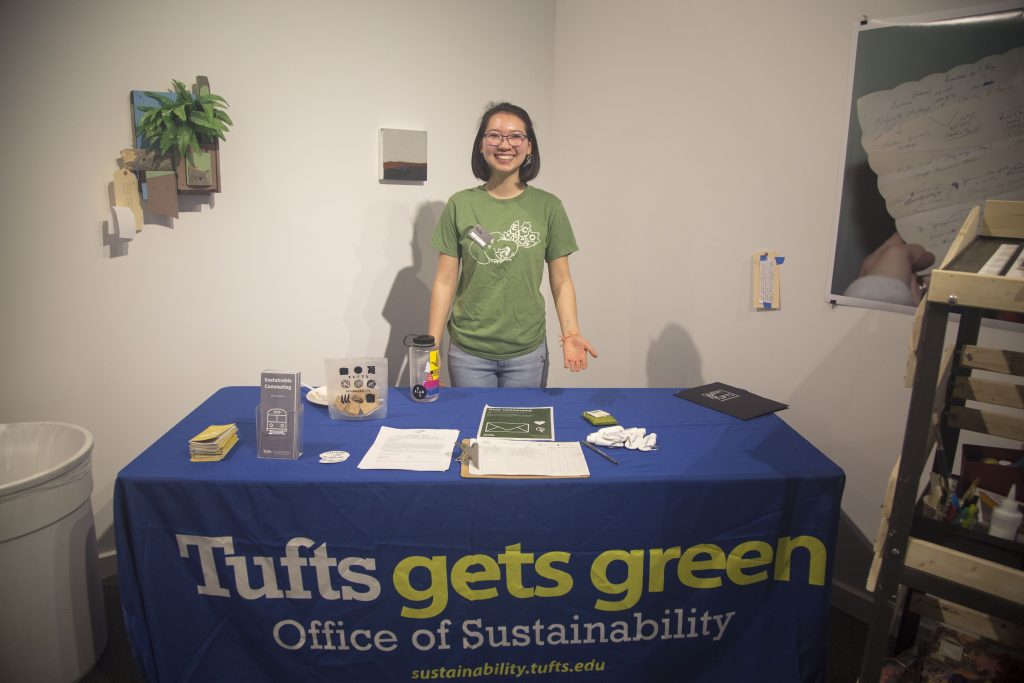
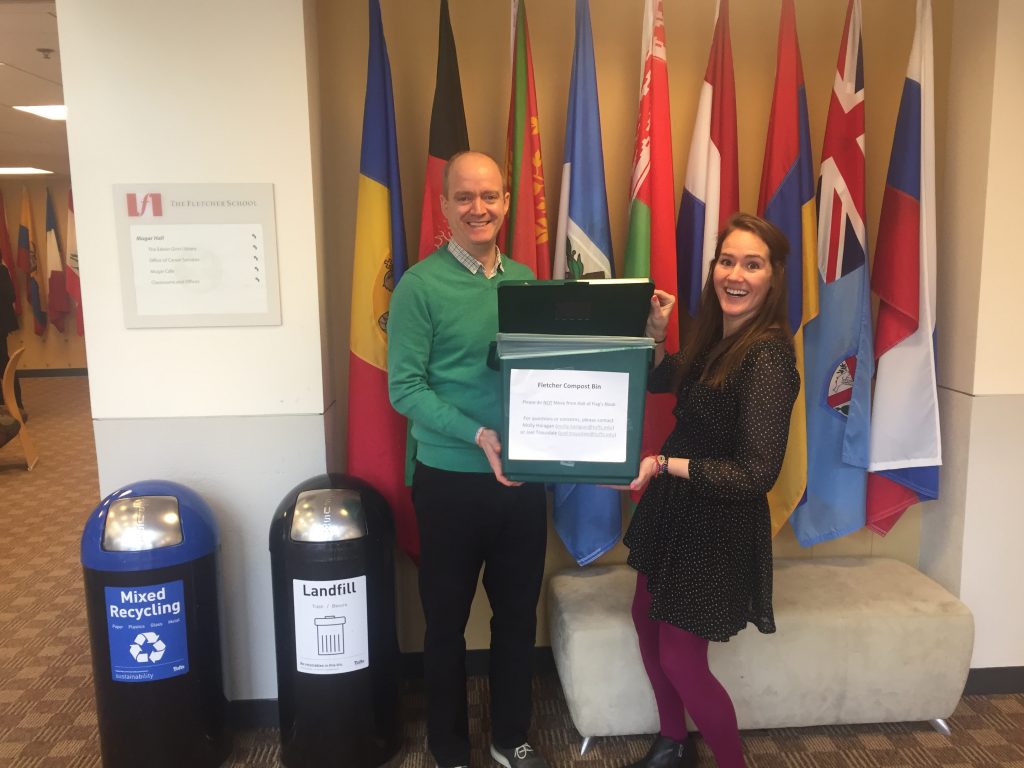
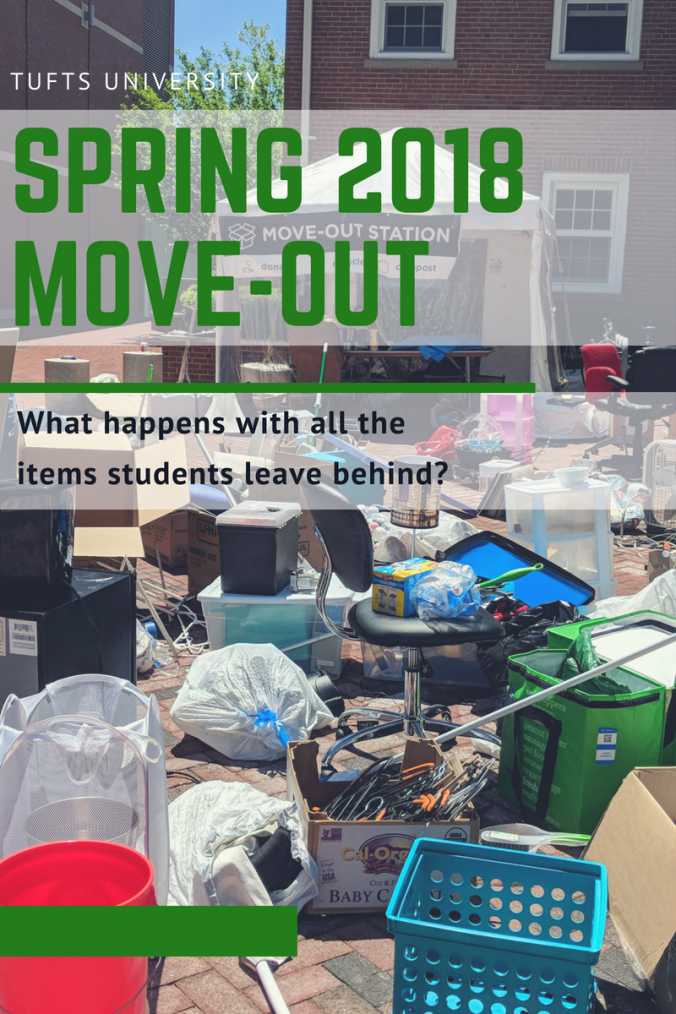
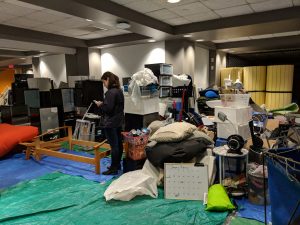
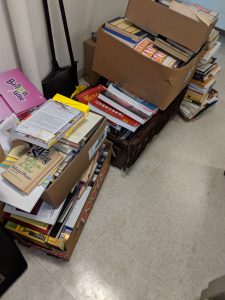


Find Us On Social Media!